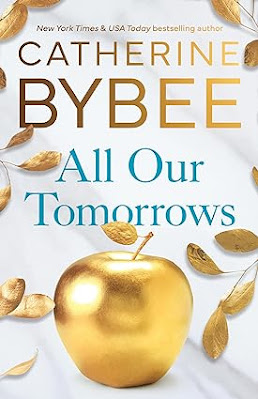John Copenhaver
John Copenhaver’s historical crime novel, Dodging and Burning, won the 2019 Macavity Award for Best First Mystery. His second novel, The Savage Kind, won the 2021  Lambda Literary Award for Best LGBTQ Mystery. He cohosts on the House of Mystery Radio Show, is the six-time recipient of Artist Fellowships from the D.C. Commission on the Arts and Humanities, and for years, wrote a crime fiction review column for Lambda Literary called “Blacklight.”
Lambda Literary Award for Best LGBTQ Mystery. He cohosts on the House of Mystery Radio Show, is the six-time recipient of Artist Fellowships from the D.C. Commission on the Arts and Humanities, and for years, wrote a crime fiction review column for Lambda Literary called “Blacklight.”
Copenhaver teaches fiction writing and literature at Virginia Commonwealth University and is a faculty mentor in the University of Nebraska’s Low-Residency MFA program.
His new novel is Hall of Mirrors.
My Q&A with the author:
How much work does your title do to take readers into the story?Visit John Copenhaver's website.
Images often make great titles. Before I began outlining the story, I knew I would call the novel Hall of Mirrors because it’s evocative, and I like the metaphorical image it conjured in the reader’s mind. It’s about doubles and identity. My bad girl/good teen duo, Judy and Philippa, from the first book, The Savage Kind, return, but now it’s 1954, and Washington, DC, is fully consumed with post-WWII paranoia.
Enter Lionel and Roger, who serve as foils for Judy and Philippa. They are a mixed-race gay couple who write under the pseudonym of Ray Kane, a hardboiled, straight mystery author persona, one of the girls’ favorite authors. After Roger is fired from his day job at the State Department for being gay, which was part of an actual initiative carried out by the federal government called the Lavender Scare, he dies in a suspicious fire. The cops deem it a suicide, but Lionel suspects foul play.
Both Judy and Philippa and Roger and Lionel represent mixed-race same-sex couples, so they serve as reflections of one another. But like any funhouse hall of mirrors, there’s distortion. Are they who they seem? Are there good and bad reasons for deceiving others about your identity?
Mirror images and doubles are also a trope in classic film noir. I reference the final scene from The Lady from Shanghai because it was an incredible funhouse sequence with mirrors and doubles and shattering glass that informed my story; it’s the most noir thing you can imagine, visually speaking. Also, there’s some subtext: Rita Hayworth was forced to whitewash what Columbia Pictures head Henry Cohn called her “Mediterranean” look for the American audience, and then Orson Welles made her a blonde in the film. So, Hayworth herself was wearing a kind of disguise.
What's in a name?
In The Savage Kind, Judy Nightingale began as Judy X in an orphanage, and then Judy Peabody. Peabody is her adoptive parent’s last name. The Peabodys mistreat her, so when she turns eighteen, she selects her own name, Nightingale, because, as she remarks to herself, “a Nightingale is a bird that sings at night, a symbol of beauty despite the darkness.” I named her Judy—or Judith—as a nod to the deuterocanonical Book of Judith, in which Judith seduces and beheads Holofernes to save her home, the city of Bethulia. She’s powerful, self-possessed, and not afraid of violence like my character.
How surprised would your teenage reader self be by your new novel?
Teenage-me wouldn’t be surprised about the love of the historical period or the mystery/thriller plot. I was a huge Christie fan and devoured Patricia Cornwell's novels. You can see both writers in my book–I have a puzzle mystery and a serial killer! However, I would’ve been shocked about my openly gay characters. It wasn’t easy to be out in the 1990s in high school in rural Virginia, and I wasn’t.
Do you find it harder to write beginnings or endings? Which do you change more?
Beginnings. Absolutely. Because so much has to be set up. You must establish the reader’s bond with your characters, lay down the appropriate threads of the mystery plot, capture the reader’s attention, and propel the story forward. All this requires lots of editing. However, the opening scene of Hall of Mirrors,with Lionel staring up at his burning apartment, trying to process the weight of what’s happening, has remained largely intact from early drafts.
Do you see much of yourself in your characters? Do they have any connection to your personality, or are they a world apart?
Oh, yes. Parts of me are in all my primary characters, but none of my characters are me. I’m a Gemini, so (surprise!) I like to explore duality in my characterization. Judy and Philippa contrast with each other, and so do Lionel and Roger, and then the couples also contrast each other. The friction between what is considered socially proper versus what’s morally right is a consistent theme in my work and my life. Everything is about contrasts and the questions that arise from contrasts.
What non-literary inspirations have influenced your writing?
I’m a big film buff if that wasn’t already apparent. I’m also a collector of film scores. I’ve been collecting them since high school and own thousands. For this reason, I write cinematically, not because I’m attempting to, but because that’s how my imagination is structured. I want to create a fully immersive experience for my reader with all the mood and detail of a lush film noir.
The Page 69 Test: The Savage Kind.
My Book, The Movie: The Savage Kind.
--Marshal Zeringue
























